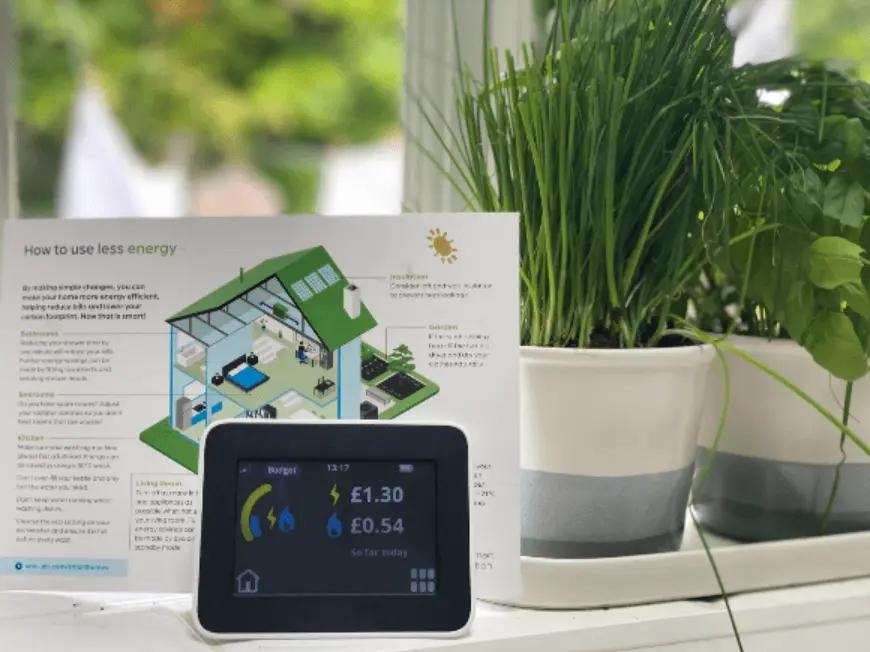Slow and Over Budget: NAO Report on Smart Meter Rollout

According to a report by the National Audit Office (NAO), the UK government's ambitious goal to roll out smart meters to all homes and small companies by the end of 2025 has experienced substantial delays and cost overruns.
This delay has caused concerns among energy companies and consumers alike, as the original deadline was almost four years ago. Let's delve deeper into the findings of the NAO report and the impact it has on various stakeholders.
Delays in Implementation and Cost Overruns
The NAO report reveals that energy companies have completed only 57 percent of the £13.5 billion project, falling far behind the initial completion deadline.
This delay not only hampers the progress of the smart meter rollout but also raises concerns about the government's ability to meet its environmental and energy efficiency goals. The delay in implementation has resulted in significant cost overruns, further complicating the situation.
Underwhelming Savings and Rising Energy Costs
One of the key findings of the NAO report is the discrepancy between the estimated savings from smart meters and the reality faced by households. The report states that the savings amount to approximately £56 per household annually, which is less than £5 per month.
These figures fall short of the government's earlier estimate of £19.5 billion in overall benefits over 20 years. This underwhelming savings figure provides little relief to households grappling with increasing energy costs.
NAO's Recommendations and the Role of DESNZ
Gareth Davies, Head of the NAO, stressed the importance of DESNZ working closely with energy suppliers to get the smart meter rollout back on track. The department must have access to full information on smart meters' total costs and benefits to make informed decisions that maximize value for money.
This collaborative effort is crucial to ensure the benefits of smart meters are realized by millions of consumers, small businesses, and the environment, aligning with the government's wider environmental goals.
Challenges Affecting Smart Meter Effectiveness
While the installation progress approaches the 60 percent coverage required for electricity networks to reap the benefits of smart meters, several challenges persist. Three million meters, or 9% of all meters, are found not to be working in smart mode as anticipated according to the NAO assessment.
Customers have also encountered difficulties in maintaining smart functionality when switching energy suppliers. Additionally, around four million first-generation smart meters have not been moved to the central platform service, hindering their ability to retain smart capabilities during customer switches.
Concerns Regarding the Central Platform Service
Concerns concerning the operation of the central platform service offered by Capita subsidiary Smart DCC are raised in the NAO report. Stakeholders have reported unreliability and a perceived focus on future services rather than ensuring reliability in the present.
Ofgem, the energy regulator, has received stakeholder consultation responses expressing concerns about the service. With Capita currently holding the license for Smart DCC, Ofgem's responsibility lies in designing and awarding the next license, expected to extend until 2040.
The Way Forward: Rectifying Challenges and Maximizing Benefits
The National Audit Office - NAO report sheds light on the slow progress, cost overruns, and functional issues plaguing the UK's smart meter rollout. With the revised deadline rapidly approaching, the government and energy suppliers must address these challenges diligently.
Rectifying the delays, ensuring reliability, and maximizing the benefits of smart meters should be the primary focus. By doing so, consumers, businesses, and the environment can experience the positive impact envisioned through this ambitious initiative.
The UK's smart meter rollout has faced significant hurdles that have hindered its progress and realization of anticipated benefits.
However, by actively addressing the challenges, working collaboratively, and leveraging robust information, the government and energy suppliers have an opportunity to rectify the situation and ensure a successful implementation that fulfills the promise of smart meters.
More: Multiple Agencies Hacked in a Broader Cyberattack: U.S Government
Business News
Why Primary Care Doctors Are Embracing Telemedicine and Digital Health Tools
Smooth Onboarding Practices for Remote Professionals Abroad
Miami Cancels Task Force to Probe Business Ties to Cuba
The Best Digital Asset Access and Control Tools for Financial Services in 2026
The Best DORA Compliance Consultants in 2026




















